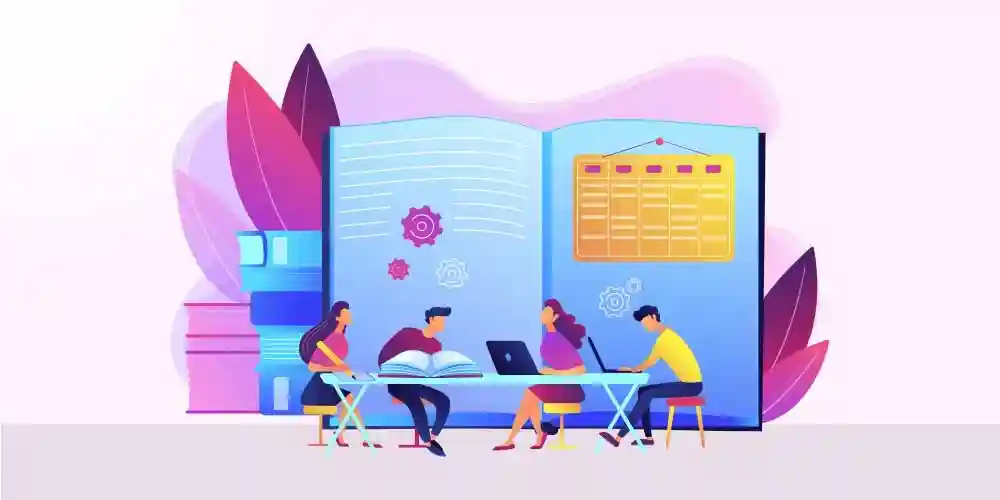The International General Certificate of Secondary Education (IGCSE) in Geography is more than just a subject. It helps students understand the world they live in. From weather and climate to urban growth and environmental concerns, you will get to know everything that shapes our planet. The IGCSE Geography curriculum, offered by Cambridge, prepares students to think deeply, solve real-life problems, and connect theory with reality. The IGCSE Geography course covers many interesting topics from both physical and human geography. You’ll learn about topics like weather, mountains, rivers, ecosystems, and how the environment works. On the human side, you’ll study topics such as cities, population, jobs, and how people impact nature.
That’s why having a good IGCSE Geography tutor can help. They only explain tough topics and guide you through tricky case studies or maps. With the proper tuition support, students feel more confident, clear their doubts faster, and stay on track with regular revision. Let’s explore what makes IGCSE Geography interesting. We’ll also see how tutors, case studies, and hands-on activities help students think clearly and solve problems with confidence.
Why is IGCSE Geography Important?
Unlike some subjects where you simply need to remember facts, IGCSE Geography is more about understanding and applying what you learn. You study natural phenomena like rivers, weather, and forests, as well as human topics such as cities, population, and industries. Most importantly, you learn how people and nature interact, for example, how building cities affects the environment.
What makes this subject truly special is its practical application in real life. With the help of IGCSE tutors, students can learn useful skills like reading maps, collecting data, and looking at different sides of a problem. These lessons don’t just help with exams, they also make it easier to understand how the world works in real life.
The Role of Case Studies and Fieldwork in IGCSE Geography
Case studies and fieldwork are important parts of IGCSE Geography. They let students go beyond books and see how things work in the real world. By visiting places or learning about real events, students understand geography better. It also makes learning more fun and easier to remember.
What Are Case Studies in IGCSE Geography?
A case study is when you learn about a real place or event in detail. It could be a flood in Bangladesh, traffic problems in London, or not enough water in parts of Africa. These real-life examples help you understand how geography works in everyday life. With guidance from IGCSE geography tutors, students examine real-life problems, analyse data, and consider how they could be addressed. This makes learning more meaningful and memorable.

Understanding Fieldwork in Geography
Fieldwork is all about going outside and finding things out for yourself. You will measure how deep a river is or talk to people about how they use a park. This helps you see things clearly, take notes, and understand what’s happening. You also learn how to use maps, tools, and ask good questions to explore ideas. It’s a fun and practical way to learn, making you feel more confident. With kind and helpful IGCSE tutors guiding you, fieldwork becomes easier to do and even enjoyable.
5 Study Tips for IGCSE Geography Case Studies and Fieldwork Success
Understanding case studies and doing fieldwork can feel tricky at first. But with the right approach, it becomes manageable and even fun. These tips will help you stay organised, learn better, and feel more confident. Remember, every small step you take builds your knowledge and skills for the real world.

Start with Good Research
Good research is the foundation of an intense case study. Learn how to gather information from trusted sources such as books, websites, videos, and reports. Organise your findings clearly and always cross-check facts. In this, IGCSE geography tutors can help you spot quality information and present it logically.
Build Critical Thinking Skills
The geography subject helps you understand not just what happened, but why it happened and what can be done next. With your IGCSE tutor, you can practise looking at different viewpoints, cause-and-effect relationships, and real-world problems. This builds your thinking skills and makes the subject more meaningful. Over time, you will find yourself interpreting news stories and everyday issues in a whole new way.
Connect Learning to Real Life
Don’t just memorise your case studies, relate them to the world around you. For example, if you’re studying urban growth, look at your city. This makes learning more personal and easier to remember. You can get help from IGCSE tutors as they share examples from local or global events to help students make these connections.
Plan Your Fieldwork Carefully
Before starting fieldwork, it’s important to make a simple plan. Students should consider what they want to find out, where they will go, and what tools or equipment they may need to use. It’s also good to consider potential challenges, such as adverse weather conditions or difficulties accessing specific locations. IGCSE Geography tutors will guide you in choosing the right questions, tools, and methods so your study goes smoothly.
Practice Presenting Data
After you complete your fieldwork, it’s essential to present your findings clearly and engagingly. You can use things like graphs, charts, tables, and maps to explain what you found. Try to identify patterns in your data and discuss their implications. These skills will help you in exams, they’re also helpful in real life. A good IGCSE tutor can help you turn tricky numbers into easy-to-understand stories that make sense to everyone.
Helpful Resources and Methods to Study IGCSE Geography
Studying IGCSE Geography doesn’t have to feel overwhelming. With the right resources and support, students can enjoy learning about the world. From digital maps to past papers and mind maps, using simple methods can make revision more fun and effective.
Use Your Textbooks
Your textbook is your best guide. It explains all the key topics, gives sample questions, and includes helpful diagrams. Try summarising each chapter in your own words.
Go Online to Explore
There are lots of educational videos, quizzes, and notes available online. Many IGCSE tutors also share resources, such as mind maps and flashcards, to support their students. These tools make revision more fun and effective.
Practice with Past Papers
The more past papers you solve, the more confident you become. You will learn how questions are asked, how to manage time, and what examiners look for. Ask your IGCSE geography tutors to review your answers and help you improve.
Group Study
Study groups make learning more interactive. You can quiz each other, explain topics, and discuss case studies. Additionally, hearing different viewpoints can help you gain a deeper understanding of the subject.
Get Expert Help from Trusted Tutors
Sometimes, all you need is a bit of extra help. Points Edulabs offers personalised tutoring with experienced IGCSE tutors who understand your needs. Whether it’s regular lessons, case studies or help with specific topics, their guidance can make a big difference.
Conclusion
IGCSE Geography goes beyond reading maps and memorising facts. It helps you understand your surroundings, your impact on the planet, and how to build a better future. By learning through real-life examples, case studies, and fieldwork, students not only gain knowledge but also acquire valuable life skills. With the help of experienced IGCSE Geography tutors and the right study tools, any student can do well in this subject. It may seem challenging at times, but the learning journey is also enjoyable, interesting, and worthwhile.
So whether you’re struggling with physical geography, need help analysing data, or want to ace your fieldwork report, the right guidance is out there. Reach out to reliable institutions like Points Edulabs, where dedicated IGCSE tutors are always



